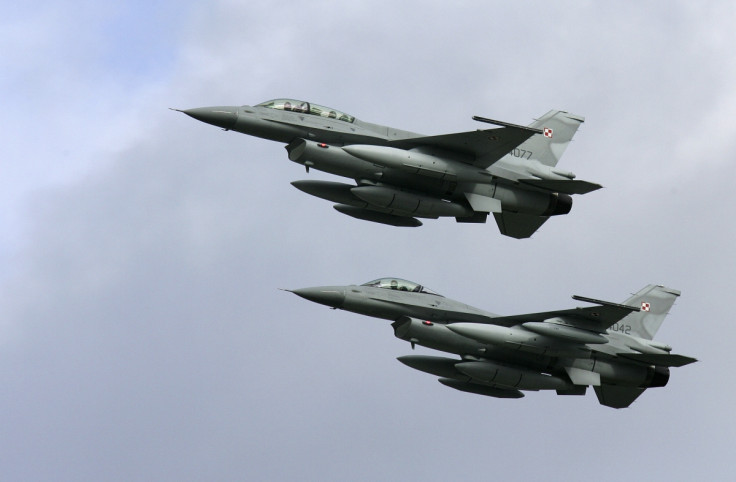Belgium confirms it will resume F-16 airstrikes on Isis in the wake of Brussels attacks

Belgium has confirmed plans to mount renewed airstrikes on Islamic State (Isis) targets, as part of the efforts of the US-led military coalition against Daesh. The plans follow the attacks in Brussels, said Belgian prime minister Charles Michel on 25 March.
"In the framework of the agreement with the Netherlands, we will resume the mission of our F-16s, said Michel, during a joint press conference with the US Secretary of State John Kerry. "We will hold a debate in the parliament and the government to decide whether it is possible to expand the mandate of the F-16s," he added.
As of 2015, the US manufactured Lockheed Martin F-16 was the second most common military aircraft in the world, though it is no longer purchased by the US airforce itself. Belgium has 54 operational F-16s. They are part of the Belgian Armed Forces Air Component – following defence budget cuts, Belgium no longer has a separate air force.
The country had previously mounted airstrikes against Isis (Daesh), so the Brussels attacks are merely a prompt for further attacks rather than representing a completely new strategic initiative. In April 2015 the Belgian ministry of defence stated that Belgium had conducted 5% of the airstrikes against IS. They were restricted to Iraq, with none taking place in Syria. At that point, the Belgians claimed to have destroyed 107 Daesh arsenals and positions in Iraq, as well as flying reconnaissance missions and supporting ground troops. There were also at least 35 Belgian military trainers and advisers working in the country. However, during the second half of 2015 Belgium withdrew its aircraft from operations in Iraq.
The US-led coalition as a whole has been mounting airstrikes against IS in Iraq and Syria since 2014. The strikes lack important international sanctions: the coalition has not received either an official request from Damascus to conduct strikes in Syria or permission from the UN Security Council. The UK is currently deploying 16 fighters on missions against IS, plus assorted drones and surveillance aircraft. In November 2015 the UK government stated that the UK had carried out 8% of coalition air strikes in Iraq, second after the US.
© Copyright IBTimes 2024. All rights reserved.





